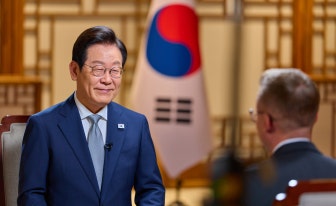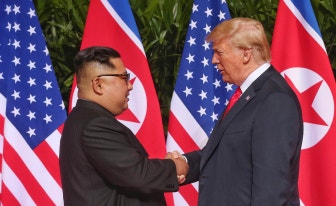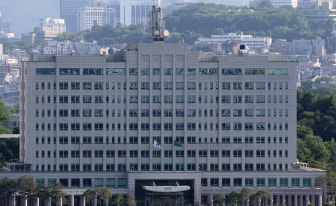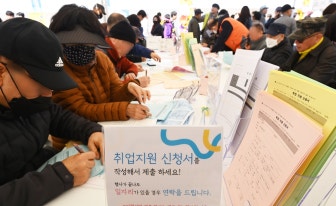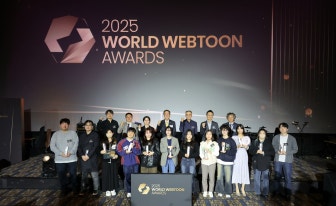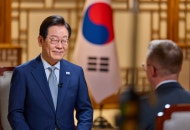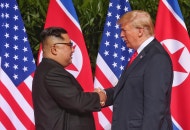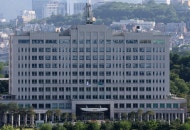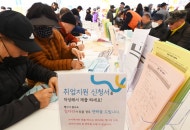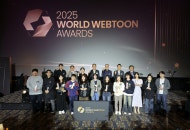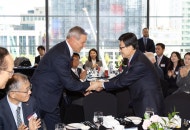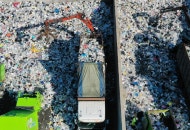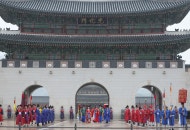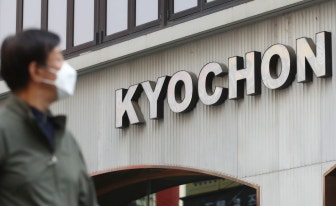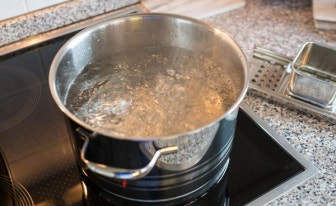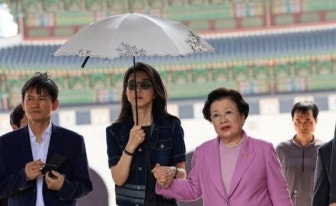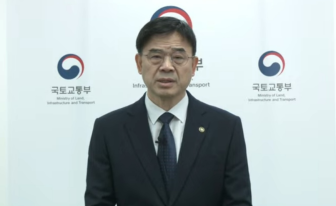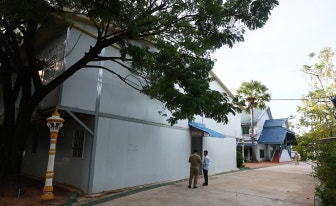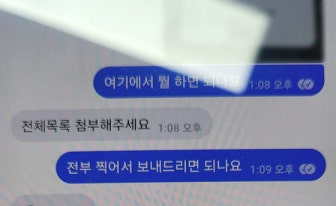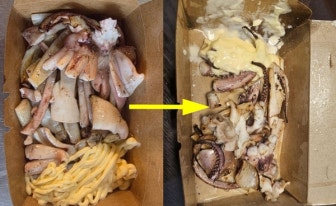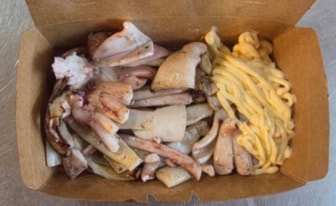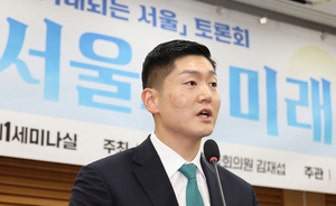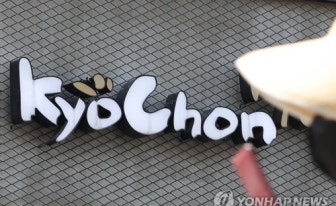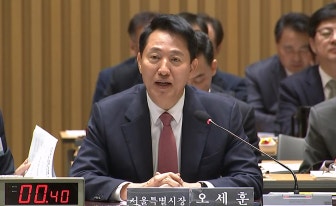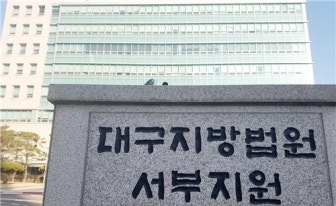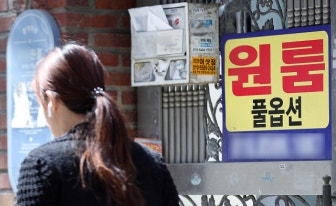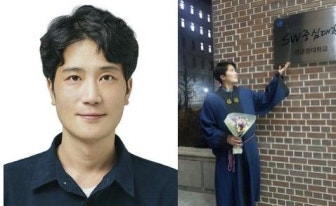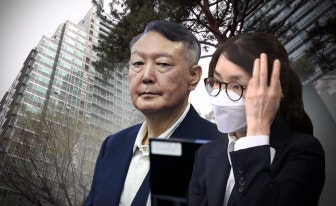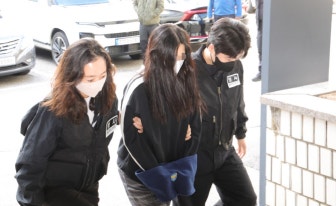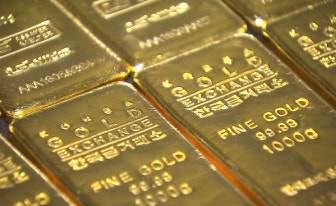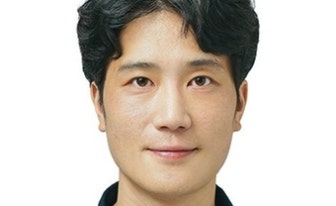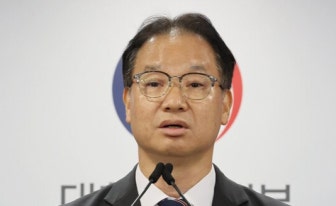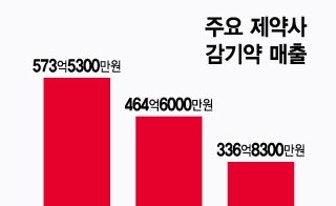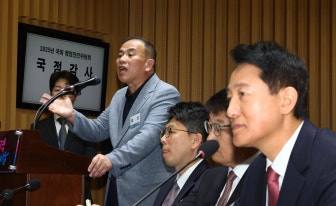| First Vice Industry Minister Moon Shin-hak (second from left) listens to port officials during a tour of Incheon New Port on Thursday. (Yonhap) |
South Korea’s steel industry is facing fresh pressure as the European Union moves to halve its tariff-free import quota, adding to strains from US trade curbs. In response, Seoul is stepping up efforts to protect exporters as it prepares to seek concessions in talks with Brussels.
Industry Vice Minister Moon Shin-hak said Thursday the government will come up with a comprehensive support program to shore up the country's steel industry, during an inspection of Incheon Port, where Hyundai Steel's export steel products are shipped.
“The government will launch a new 400 billion won ($281 million) export supply-chain guarantee program in partnership with private and policy financial institutions to help steel exporters overcome rising global trade barriers,” Moon said at the port near Hyundai Steel’s Incheon plant. The port serves as a major gateway for Korea’s steel exports.
Moon also said the government will unveil a "Steel Industry Advancement Plan" later this month, which will include product-specific strategies to respond to global oversupply and stronger trade defense measures against unfair imports. The plan will also expand investment support for low-carbon and high-value-added steelmaking, including hydrogen-based steel and specialty carbon steels, along with efforts to strengthen safety management and industry cooperation, he added.
Moon's remark came after the European Commission announced a plan on Tuesday to slash its tariff-free steel import quota by 47 percent from 2024 to 18.3 million metric tons, and to double the tariff to 50 percent on any steel imported in excess of this amount. The measure is scheduled to take effect in June 2026.
“The impact on Korea remains uncertain, as country-specific quota allocations have not yet been announced. However, a significant effect is expected, as the EU is one of Korea’s top two steel export markets,” the Industry Ministry said.
“As the EU has stated that it will consider its Free Trade Agreement partner countries when allocating quotas, Korea will aim to secure the highest possible share through bilateral negotiations.”
Under the Korea-EU FTA, which came into effect in 2011, Korean steel exports to the EU are generally tariff-free. Since the EU implemented its safeguard measures in 2018, Korea has received country-specific quotas.
To convey Korea's views and concerns regarding the new measures, Trade Minister Yeo Han-koo is expected to meet European Commissioner for Trade and Economic Security Maros Sefcovic, the ministry said.
According to the Korea International Trade Association, Korea exported $4.48 billion worth of steel to the EU in 2024, slightly surpassing the United States' $4.35 billion. The EU accounted for approximately 13 percent of Korea’s total steel export value.
Local media reports said that of Korea’s 3.8 million tons of steel exports to the EU over the year through June, 2.63 million tons were shipped under Korea’s tariff-free quota, while the rest fell under the EU’s global quota, which applies regardless of origin.
However, the reduction in total quota is expected to adversely affect Korea’s allocated volume.
“An exclusion of FTA partners' imports (from new measures) is not possible. They represent 2/3 of total imports, some of which contribute to overcapacity, and such an exclusion would make the measure totally ineffective,” the European Commission stated Tuesday.
The EU’s move is likely to further strain Korean steelmakers, who are grappling with rising protectionism, tighter environmental regulations and a steady influx of low-priced Chinese products.
The United States imposed a 50 percent tariff on steel and steel-containing products in August after eliminating the tariff-free quota for Korean steel, leading to a 25.9 percent on-year drop in Korea’s steel exports to the US to $283.41 million.
“With about a year before the new measures take effect, Korea has the opportunity to leverage its negotiating power with the EU,” said Kim Tae-hwang, an international trade professor at Myongji University.
“Like EFTA members — Norway, Iceland and Liechtenstein — who were exempted from certain measures despite not being EU members, Korea should utilize its FTA with the EU to secure favorable conditions through bilateral talks.”

